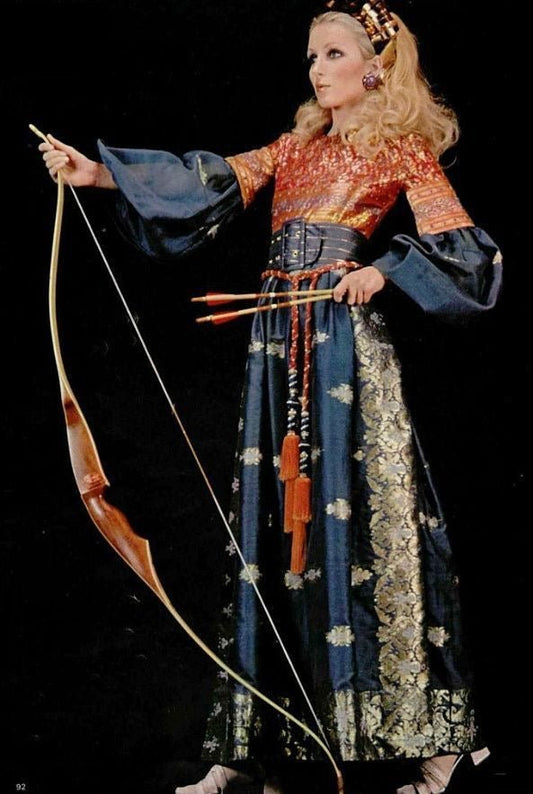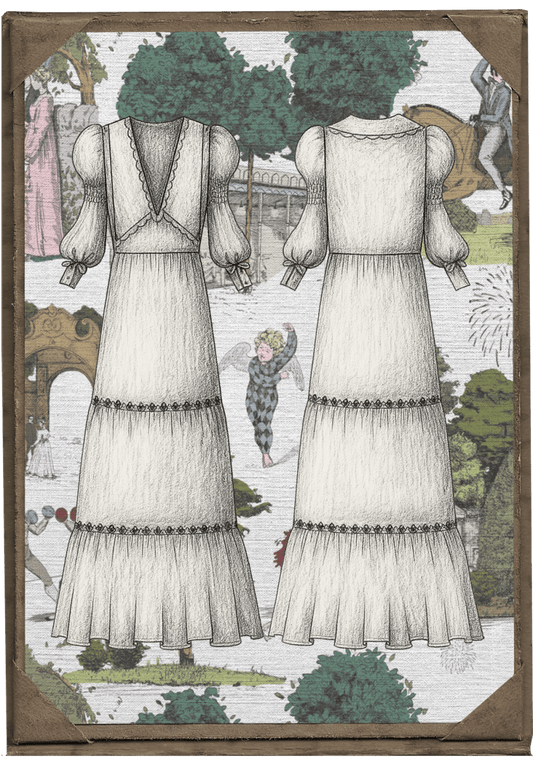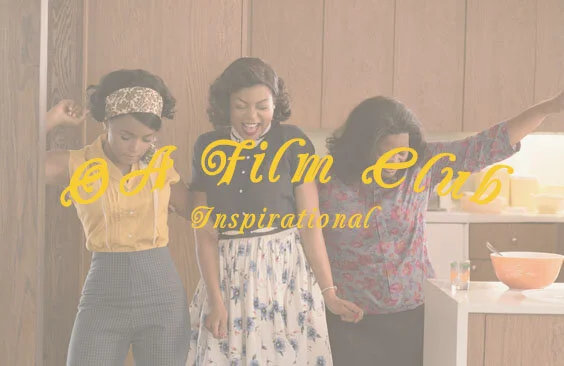
This weeks Film Club is about Inspirational films. It felt wrong to not address the growing movement across the UK and USA this week in support of Black Lives Matter. Therefore this week we would like to dedicate this Film Club to films that we find inspiring that are have been directed, produced or speak to the experiences of people of colour. Most of these films showcase uncomfortable truths and it is now more important than ever to recognise and educate ourselves on these issues. Below our Film Club we have included a reading list, documentary list and also links to petitions we feel are important.
Hidden Figures (2016)
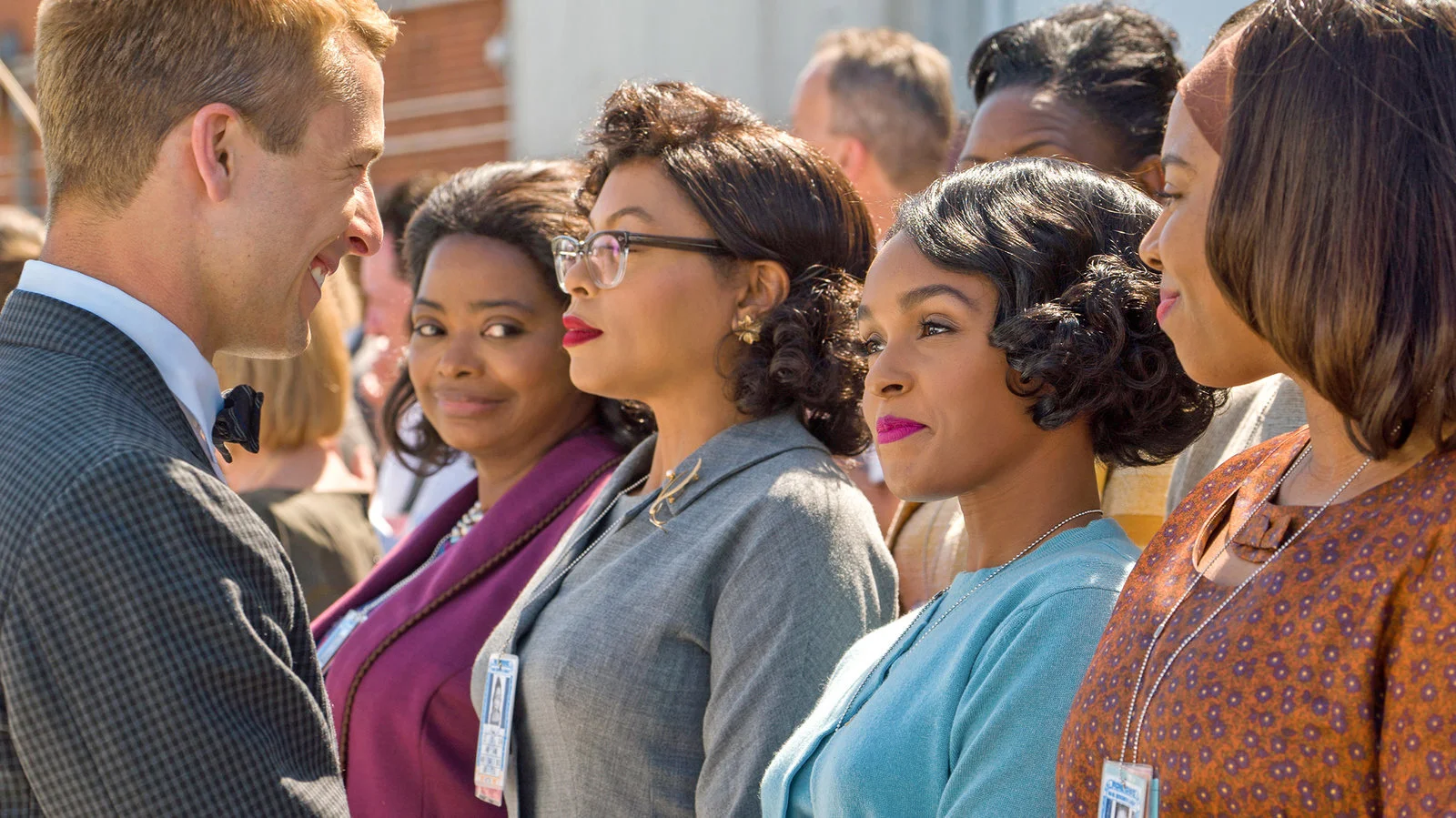
Based on the true story of three brilliant African-American women at NASA -- Katherine Johnson (Taraji P. Henson), Dorothy Vaughan (Octavia Spencer) and Mary Jackson (Janelle Monáe)- this film effectively conveys the systemic racism and sexism prevalent in 1960s American society, in which racial segregation and workplace sexism were widely accepted facts of life. These women played instrumental roles in the successful launch of astronaut John Glenn into space, yet until recently few of these women were acknowledged in academic publications. Whilst these women rallied against such injustices, this film is a vital reminder of the poisonous normalcy of white supremacy and the prejudice of racism that remains a contested issue to this day. On November 8th 2019 it was signed into law the "Hidden Figures Congressional Gold Medal Act," which provides for the award to mathematician Katherine Johnson and engineer Christine Darden, as well as the posthumous award to engineer Mary Jackson and computer programmer Dorothy Vaughan.
Belle (2013)
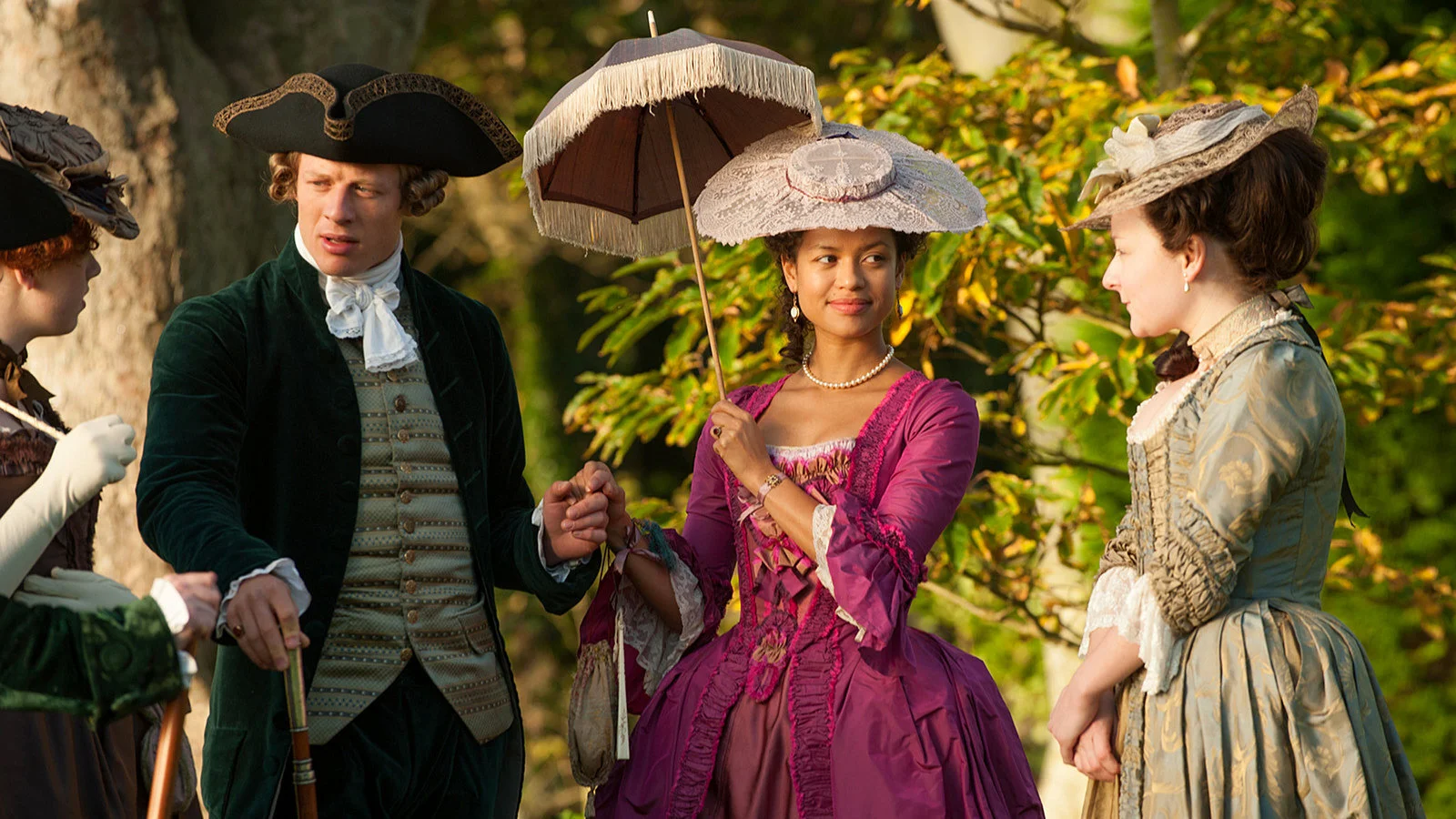
Belle tells the story of Dido Elizabeth Belle, a mixed-race heiress, born in slavery but brought up in the world of the British aristocracy and is directed by Amma Asante who was inspired to make the film after seeing the portrait of ‘Belle’ and her white cousin, Lady Elizabeth Murray, seemingly painted as equals. Asante recalled “This painting flipped tradition and everything the 18th century told us about portraiture. What I saw was an opportunity to tell a story that would combine art history and politics.” While the film charts Belle’s ascendancy to the aristocracy, it is also evident that Belle’s material wealth and status created a facade of equality. In reality Belle’s mixed-racial identity led to feelings of discontent and dislocation :- "I am too high to eat with the servants, too low to join you at dinner," Belle, played by Gugu Mbatha-Raw, tells Tom Wilkinson as the Earl of Mansfield. Belle was trapped between worlds, and not wholly welcome in either. The real-life Belle had a happy ending, was married, and was much loved by her family with the Earl of Mansfield leaving her a large portion of his will.
Self Made (2020)
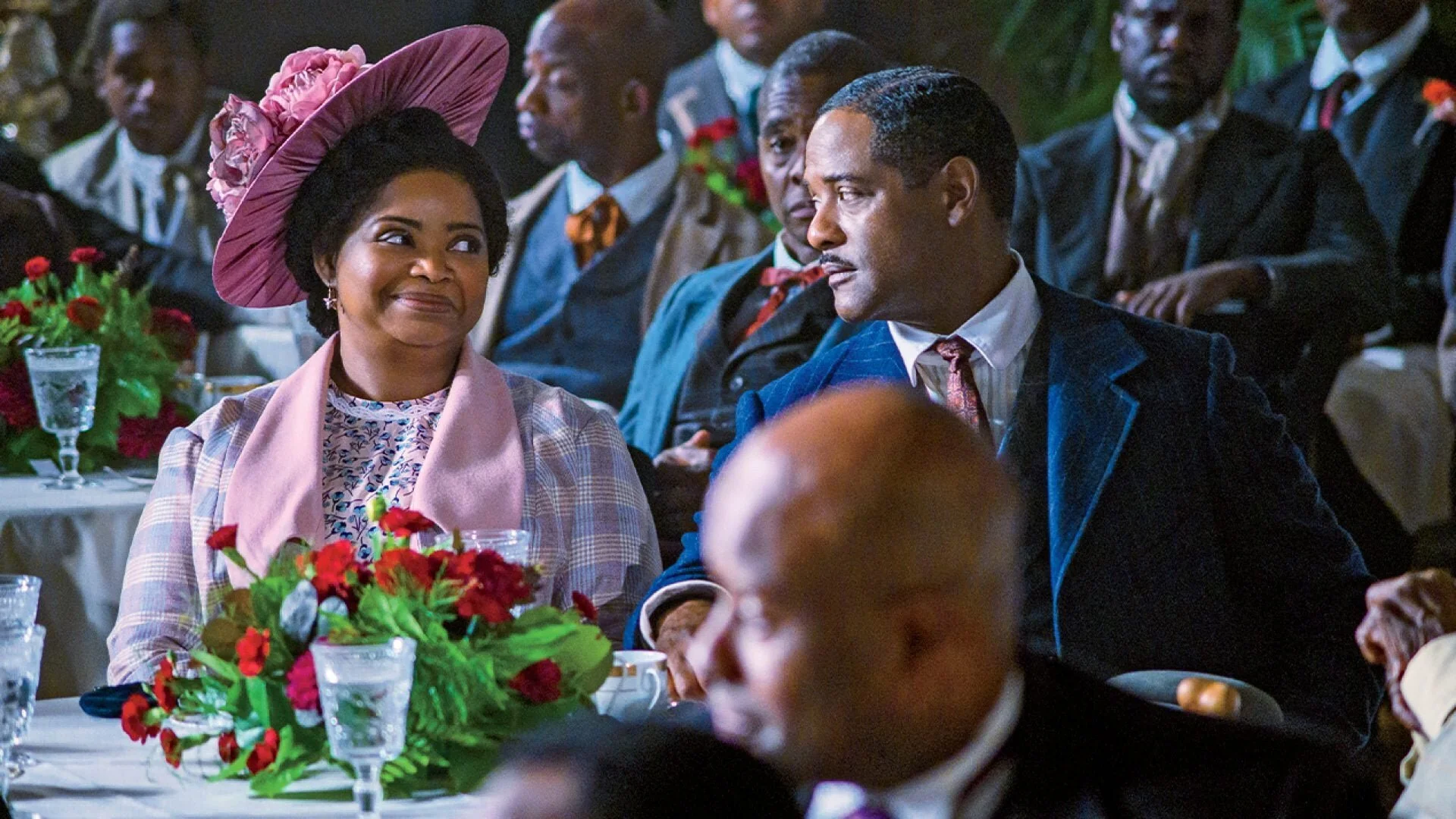
Self-Made isn’t a film but a 4-part mini series however we had to include it on our must watch list! It tells the incredible story of Madam C.J. Walker’s astronomical success in business in early 20th Century America against all the odds. She was the first in her family to be ‘free-born’ ,and overcame racism and sexism to become the first female self-made millionaire in America, even owning a house neighbouring Rockefeller in New York! C.J.Walker was an astute business woman, tapping into a previously ignored market- that of the black woman- which earned her such acclaim. She was also an advocate of black rights and female rights, as she invested in education, employing and training a staggering 20,000 female sales agents to sell her hair product who each gained independence through this role. While the show, directed by Kasi Lemmons, traces this black owned business success, it also promotes black art, music and culture throughout- exposing the lives of the creatives of black downtown Harlem and integrating modern black music artists with those of the contemporary period to chart the progression of the black experience in popular culture.
The Help (2011) & The Help Book (2009)
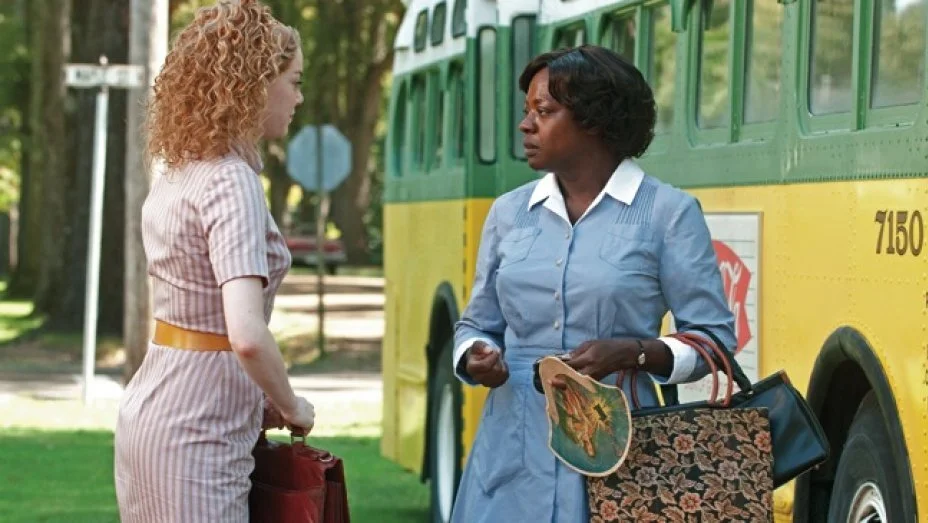
The Help successfully crafts a narrative to amplify black voices with moments of humour, without trivialising the issue of black experience. It has been said that this film doesn’t go far enough in its presentations of overt racism, focusing instead on the covert, subtle racism that masquerades as employer-employee respectability. Yet the echoes of slavery permeate the text and the treatment of black folk who go against the strictly segregated societal codes is brutal and painful to behold. It is poignant and touching in its portrayal of black female relationships and how these interlace with and contrast with strained black/white female relationships that cross race and class boundaries. The female sphere is central here as opposing female voices clamour to be heard and respected in this southern town society. An interesting dialogue is created between black voices and white voices, as in order for the black women to express themselves, they must do it through the medium of the white female voice- who has priority here? In the modern context of non-black ‘allyship’ it remains an informative thread in the evolution of ‘telling’ the black narrative.
Black Panther (2018)
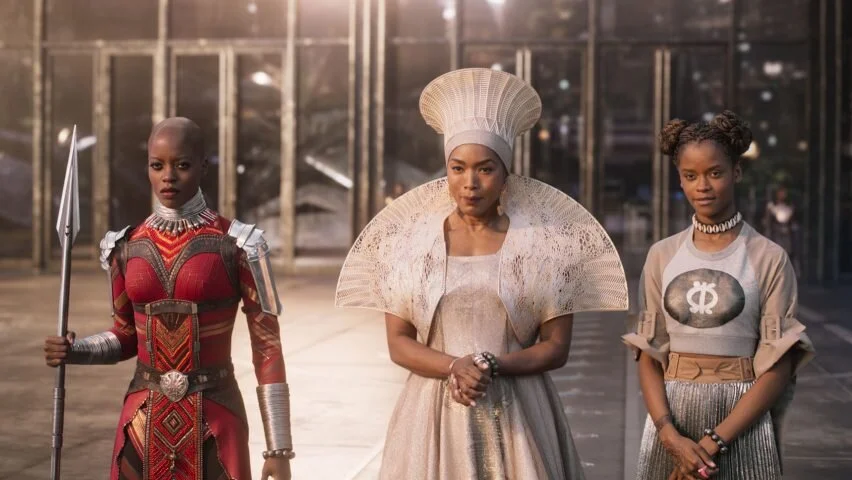
Black Panther is an absolute masterclass. The first ever Oscar win for a Marvel Film, it showcases African nations as innovative, technologically advanced, and cosmopolitan, the setting of Wakanda praises Africa and African heritage. The fact that this depiction of Africa seems new, different and compelling to a non-black audience is a stark comment on the systemic repression of black narratives by the limited, prejudiced colonial viewpoint widely expressed thus far. African culture, fashions and traditions are celebrated by an all black cast and black director as never before, this film is a visually stunning celebration- Wakanda Forever!
Documentaries Really Worth Watching
-
13th
-
When They See Us
-
Olympic Pride, American Prejudice
-
King In The Wilderness
-
Versailles ‘73: American Runway Revolution
-
Strong Island
-
Teach Us All
Books To Educate
-
Taking Up Space by Chelsea Kwakye and Ore Ogunbiyi
-
The Color Purple by Alice Walker
-
Girl, Woman, Other by Bernadine Evaristo
-
Don’t Touch My Hair by Emma Dabiri
-
Beloved by Toni Morrison
-
Why I’m No Longer Talking to White People About Race by Reni Eddo-Lodge
-
Queenie by Candice Carty-Williams
-
White Fragility by Robin DiAngelo
Let’s Take Action


